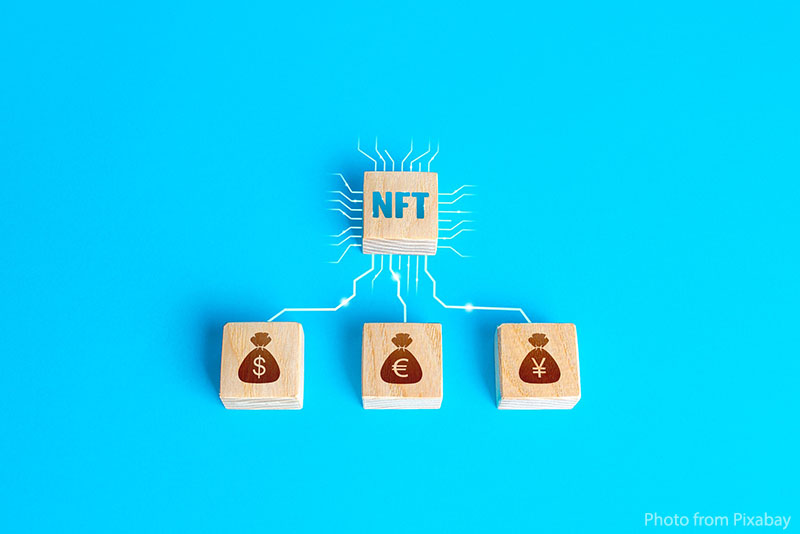
REGULATING NFTs: A TAX PERSPECTIVE
By: Atty. Jomel N. Manaig
"Although RMC No. 60-2020 mandates the registration of persons conducting business through any forms of electronic media, there is no detailed roadmap on how to tax NFT transactions. But, as certain as the sun rising, we have to keep in mind that tax is our constant companion even in the digital realm."
The younger generations of Filipinos have always been tech-savvy. From the latest social media crazes to the advancement of cryptocurrencies, we are consistently treated as digitally-forward. Enter: Non-Fungible Tokens (NFT).
 NFTs, according to the Bangko Sentral ng Pilipinas, generally represent a class of virtual asset that differs from traditional cryptocurrencies in that an NFT establishes ownership over a unique asset. This characteristic of uniqueness captures the non-fungibility aspect of NFTs. However, even if a definition was given, the BSP still has no specific rules and regulations for NFTs.
NFTs, according to the Bangko Sentral ng Pilipinas, generally represent a class of virtual asset that differs from traditional cryptocurrencies in that an NFT establishes ownership over a unique asset. This characteristic of uniqueness captures the non-fungibility aspect of NFTs. However, even if a definition was given, the BSP still has no specific rules and regulations for NFTs.
This absence of specific rules and regulations extend to other government agencies like the Bureau of Internal Revenue. Although RMC No. 60-2020 mandates the registration of persons conducting business through any forms of electronic media, there is no detailed roadmap on how to tax NFT transactions. But, as certain as the sun rising, we have to keep in mind that tax is our constant companion even in the digital realm.
In this article, we will seek to apply basic tax concepts in the sale and purchase of NFTs.
It is important to note that an NFT is still considered as a property. For tax purposes, a property may be classified as an ordinary asset or a capital asset. This distinction is important since it will determine the taxation of the NFT.
If the NFT of a taxpayer is part of the stock in trade, is included in inventory, is held primarily for sale to customers in the ordinary course of trade or business, or is used in trade or business from which an allowance for depreciation is recognized, then it will be considered as an ordinary asset. The sale of such NFT should result into an ordinary income and be subjected to income tax, after the deduction of ordinary and necessary expenses, at the regular income tax rate applicable to individuals or juridical entities, as the case may be.
In addition, the sale would also be subject to VAT or other percentage tax, whichever is applicable, since such sale, barter, or exchange is considered as having been done in the course of trade or business.
On the other hand, if the NFT does not fall within those considered as an ordinary asset, it shall be considered as a capital asset. In the absence of a specific provision in the Tax Code, as amended, providing for special income tax rates on passive income, the taxpayer shall recognize capital gains or losses from the sale of the NFT.
In taxing such capital gains or losses, only those generated from the sale or exchange of capital assets shall be considered. The net capital gains, or the excess of the gains from sales or exchanges of capital assets over the losses from such sales or exchanges, shall form part of the taxable income of the taxpayer. Meanwhile, for capital losses, the deductibility shall be allowed but only to the extent of the gains from such sales or exchanges.
Since the subject of the sale or exchange is a capital asset, it shall not be subject to a VAT or percentage tax.
Despite the application of general tax principles, there are still a lot of questions that must be resolved to effectively tax NFTs.
For one, determination of gains from sale of NFT is relatively easy if facilitated through a fiat currency, but how is such determination going to be if the purchase is done using cryptocurrency? It should be noted that a cryptocurrency is still technically a property. Therefore, exchanging an NFT for a cryptocurrency is a barter. The tax consequences of a barter transaction are greatly affected by the appreciation or depreciation of the properties involved.
Another question which may impact the taxation of NFTs is the effect of licenses or royalties due from the copyright and the rights to intellectual property over the NFT. How will this impact the sale and transfer of the NFT from one owner to another?
The author is a junior partner of Du-Baladad and Associates Law Offices (BDB Law), a member-firm of WTS Global.
The article is for general information only and is not intended, nor should be construed as a substitute for tax, legal or financial advice on any specific matter. Applicability of this article to any actual or particular tax or legal issue should be supported therefore by a professional study or advice. If you have any comments or questions concerning the article, you may e-mail the author at This email address is being protected from spambots. You need JavaScript enabled to view it. or call 8403-2001 local 380.




